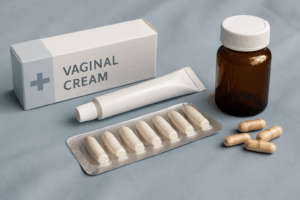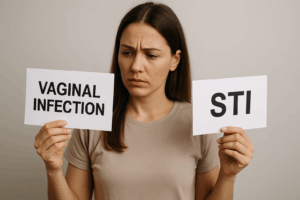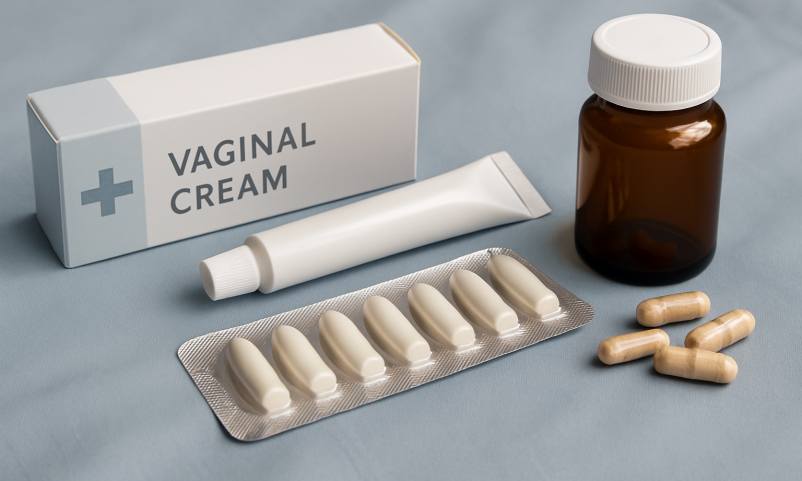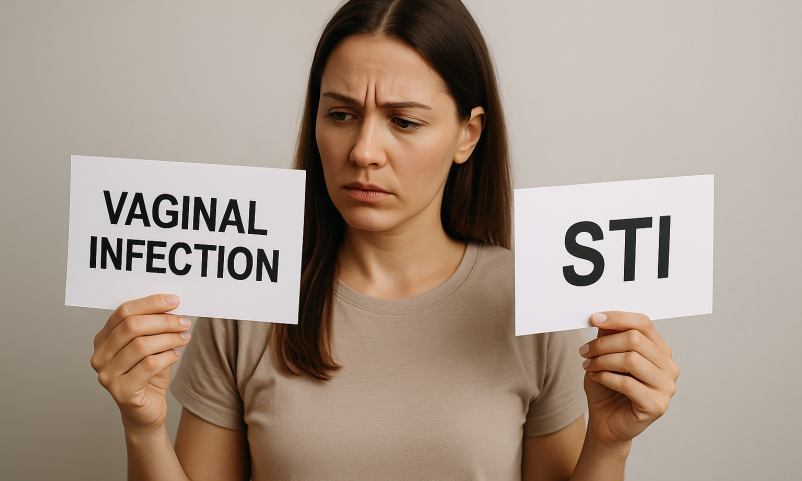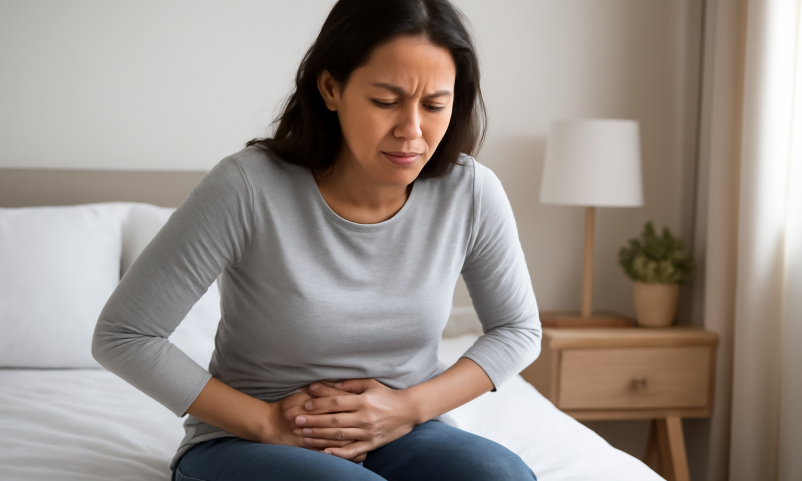If you’re considering getting an IUD or already have one, you might wonder whether it can affect your mood or anxiety levels. This concern is understandable, especially with the wide range of stories shared online and in social spaces.
However, current clinical evidence shows that IUDs do not cause mood changes or anxiety. Neither hormonal nor non-hormonal IUDs are recognised in clinical guidelines as affecting emotional health.
In this guide, we’ll walk you through what the research says, why these concerns arise, and what to consider if you’re feeling off emotionally after insertion, so you can make informed decisions about your care.
Are Mood Changes a Side Effect of IUDs?
Mood changes and anxiety are not considered side effects of either hormonal or copper IUDs. Clinical guidelines and prescribing information do not list emotional symptoms as expected outcomes of IUD use.
Large-scale studies have found no direct or consistent link between IUDs and depression, anxiety, or mood swings. This applies to both hormonal IUDs, which release a small amount of progestin locally, and non-hormonal options like the copper IUD.
The belief that IUDs may affect mood likely comes from personal stories shared online or in forums, where emotional changes may have occurred around the same time as insertion. In many of these cases, the symptoms are real, but not caused by the IUD itself.
How Hormonal and Copper IUDs Work in the Body

Hormonal IUDs release a small amount of progestin directly into the uterus, where it works to thicken cervical mucus and prevent sperm from reaching an egg. Because the hormone is delivered locally, very little enters the bloodstream, resulting in minimal systemic hormone exposure compared to oral contraceptives or hormonal injections.
Copper IUDs are completely hormone-free. They prevent pregnancy by creating a local inflammatory reaction that interferes with sperm movement and egg fertilisation. Since there are no hormones involved, there is no hormonal impact on mood or emotional wellbeing.
If you’re concerned about hormone sensitivity, it’s reassuring to know that IUDs, especially hormonal ones, deliver far less systemic hormone exposure than most other contraceptive methods.
Feeling Off Emotionally? Here’s What to Consider
If you’re not feeling like yourself emotionally after getting an IUD, it’s natural to reflect on what might be contributing to the change. While IUDs are not linked to mood changes, it’s still important to pay attention to your mental wellbeing.
Mood shifts can be influenced by many factors, stress at work, relationship challenges, sleep disruption, or even hormonal fluctuations during your natural cycle. These events can coincide with IUD insertion, leading some to associate their emotional state with the device.
Take a moment to consider whether any life transitions, routine changes, or external pressures could be playing a role. Your emotional health matters, and understanding the broader context can help guide your next steps.
When to Talk to Your Doctor

Even though IUDs are not linked to mood or anxiety issues, it’s always appropriate to check in with your doctor if you’re experiencing emotional changes that concern you.
You may want to schedule a consultation if:
- Your mood changes persist over several weeks
- Feelings of anxiety begin to interfere with daily life or relationships
- Emotional symptoms appear well after the IUD was inserted
Your doctor can help explore other possible causes, such as stress, sleep disturbances, or hormonal fluctuations unrelated to the IUD. In some cases, discussing mental health support or lifestyle changes may be more helpful than changing contraception.
If removal is considered, it should be a medical decision, not an emotional reaction. Your care team will help guide the process based on your overall health and needs.
Why IUDs Remain a Trusted Choice

IUDs continue to be one of the most recommended forms of contraception worldwide due to their reliability, convenience, and long-term protection. They are reversible, require minimal maintenance, and are highly effective at preventing pregnancy.
Both hormonal and non-hormonal options are available, allowing you to choose what best fits your preferences and health profile. Whether you’re looking to avoid hormones or prefer extended protection without daily pills, IUDs offer flexibility.
Importantly, IUDs are considered appropriate for a wide range of users, including those with a history of mental health concerns. Their safety profile and low systemic impact make them a trusted option in clinical practice.
FAQs About IUDs and Mood
Q: Can hormonal IUDs cause depression?
A: No. Clinical studies have not shown a direct link between hormonal IUDs and depression. Most users do not report any emotional side effects.
Q: Is the copper IUD better if I’m sensitive to hormones?
A: The copper IUD may be a suitable option if you prefer to avoid hormones, but mood changes are not expected with either IUD type.
Q: What if I feel worse after getting an IUD?
A: If you’re feeling emotionally unwell after insertion, it’s important to check in with your doctor. Other factors may be contributing, and your provider can help you explore the right next steps.
Conclusion
It’s completely valid to ask questions about your emotional wellbeing when choosing or using contraception. While the research clearly shows that IUDs do not cause mood changes or anxiety, listening to your body is still important.
If something feels off, take a moment to reflect and speak to a healthcare provider you trust. Emotional health matters just as much as physical health, and you deserve care that supports both.
Remember: there’s no proven link between IUDs and mood disorders. But if you’re not feeling like yourself, it’s always okay to reach out and get the support you need.



